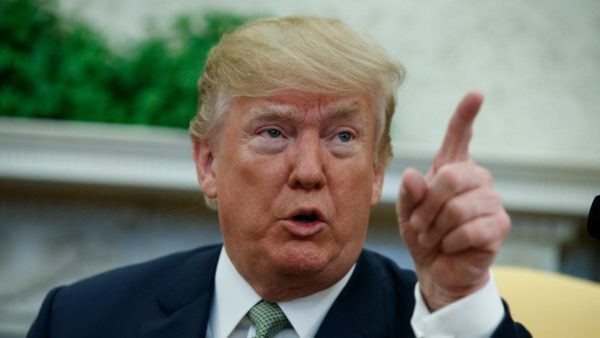Banks face U.S. sanctions over North Korea, Iran deals
HEAVY fines await banks processing transactions for North Korea and Iran, Adjunct Senior Fellow, Energy, Economics and Security, Centre for a New America Security (CNAS), Peter Harrell, said on Wednesday.
Such banks risk being cut off from their correspondent banks across the world.
Speaking at a workshop organised by the Compliance Institute Nigeria (CIN) and CNAS in Lagos, Harrell said that banks have also been advised not to process transactions that are going to any entities or countries that have been sanctioned by the United States (U.S.), European Union (EU) and United Nations (UN).
North Korea, Iran and Sudan are under the U.S., EU and UN sanctions lists. They were sanctioned for working against the interest of global environment. They are being accused of promoting terrorism, proliferating weapons of mass distraction and threatening world security.
Harrell said that enforcement cases in recent years showed that violations are more in Middle East and Asia. He said that although the U.S. has not seen a lot of North Korea and Iran trade in Nigeria, but as restrictions in Middle East, Asia and elsewhere tighten up, the North Korea and Iran could be looking for new markets.
Harrell said that many Nigerian banks are coming under more pressure from their U.S./European correspondent banks on compliance issues because the U.S. and European banks are also under regulatory pressure.
He said that banks with international operations tend to invest more on compliance than a bank that is locally focused.
Harrell said: “We have taught the banks general best practices in sanction compliance, how they should test and screen software, and also understand what their sanction risks are.
“What can banks do to get ahead of problems and ensure their compliance programmes are best in class? We also looked at specific transactions we are seeing here in Africa from North Korea and general/ best practices on how banks can deal with their due diligence.”
Continuing, he said the banks need to know the specific due diligence needed on particular transactions to enable them stay safe.
He said that any bank that fails to comply will face real risk of significant fines that U.S. Government has imposed on banks in Europe, Middle East and Asia.
“These fines can be in tens of millions of dollars. It is very significant fines for institutions that process prohibited transactions through the U.S.”, he said.
He went on: “We saw just a month ago, the U.S. sanctioned Russian bank for North Korean transactions. The bank did not have to pay a fine, it was added to the US sanctions list. It was cut off from the United States. That’s a very severe penalty for a financial institution or any company to deal with.
“Compliance with sanctions costs money. If you are doing a trade finance with Iran, you got to give up that business. The question for the banks is: should it go ahead with the business and get the profit? If you do that, you will be paying fines far higher than the profits you are making from that business. We are talking about negative incentives here than the positive incentives.”
According to him, the main thing is to get financial institutions in Nigeria understand some tactics that they may be trying to use even if they have not been doing a lot in the last couple of years.
He said: “It is a pleasure to be here in Lagos, and I will be in Abuja tomorrow (today). The workshop here in Lagos and Abuja, are part of series of workshops we are organizing around the world, to help educate both government officials and the private sector on the sanction issues, particularly around North Korea and Iran.
“We want to increase knowledge about these issues. We want to make these workshops interesting and informative for banks, telling them how to avoid getting in trouble with regulators. Will help government implement UN polices and Financial Action Task Force recommendations.”


